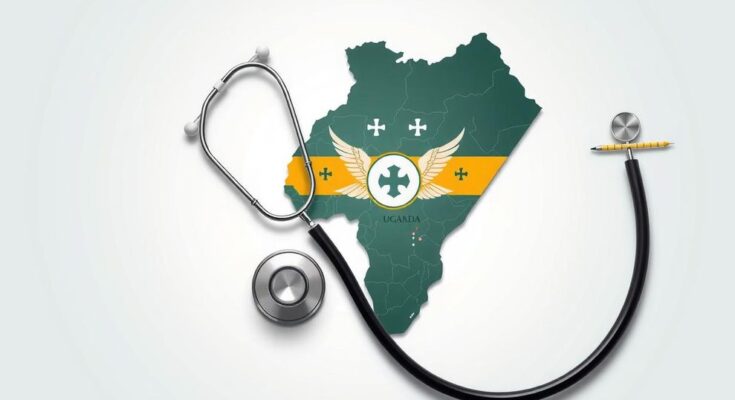USAID has canceled four critical Ebola contracts in Uganda, despite claims by Elon Musk of restored support. Following significant staffing cuts, only six USAID staff remain to manage multiple outbreak responses, complicated by the suspension of essential airport screening and protective gear programs. The funding cuts threaten to impede efforts in controlling outbreak responses effectively.
On February 28, 2025, it was reported that the United States Agency for International Development (USAID) canceled at least four Ebola contracts in Uganda, contrary to statements made by billionaire Elon Musk claiming that aid had been restored. These contracts, part of a broader reduction of over 10,000 grants, were vital for handling ongoing outbreaks as Uganda continues to suffer consequences from prior Ebola infections.
Elon Musk, who serves as a senior adviser to President Donald Trump, noted in a Cabinet meeting that funding for Ebola prevention had been reinstated immediately after a brief suspension. However, former USAID officials disputed this assertion, citing at least a two-week pause in airport screening for Ebola, which necessitated a service provider to utilize its own funds to continue operations after an official contract termination.
As a result of the cuts, the number of USAID personnel dedicated to outbreak response has drastically decreased from over 50 to just six individuals, tasked with managing multiple outbreaks concurrently, which one official deemed unfeasible. While some waivers for health programs were granted by the Trump administration, actual funding delivered on the ground remains limited and problematic, given the uncertainty of reimbursements.
The cancellation of crucial Ebola aid contracts by USAID reflects significant cuts in public health funding under the Trump administration, raising concerns about the ability to effectively manage the resurgence of infectious diseases like Ebola. Despite assertions made by officials, the realities on the ground demonstrate severe constraints in funding and resources, potentially undermining efforts to control outbreaks and protect public health. In light of these developments, the U.S. role in managing international health crises is likely to diminish, leading to greater challenges in addressing future medical emergencies, especially in regions such as Uganda recovering from Ebola outbreaks.
Original Source: www.healthday.com




